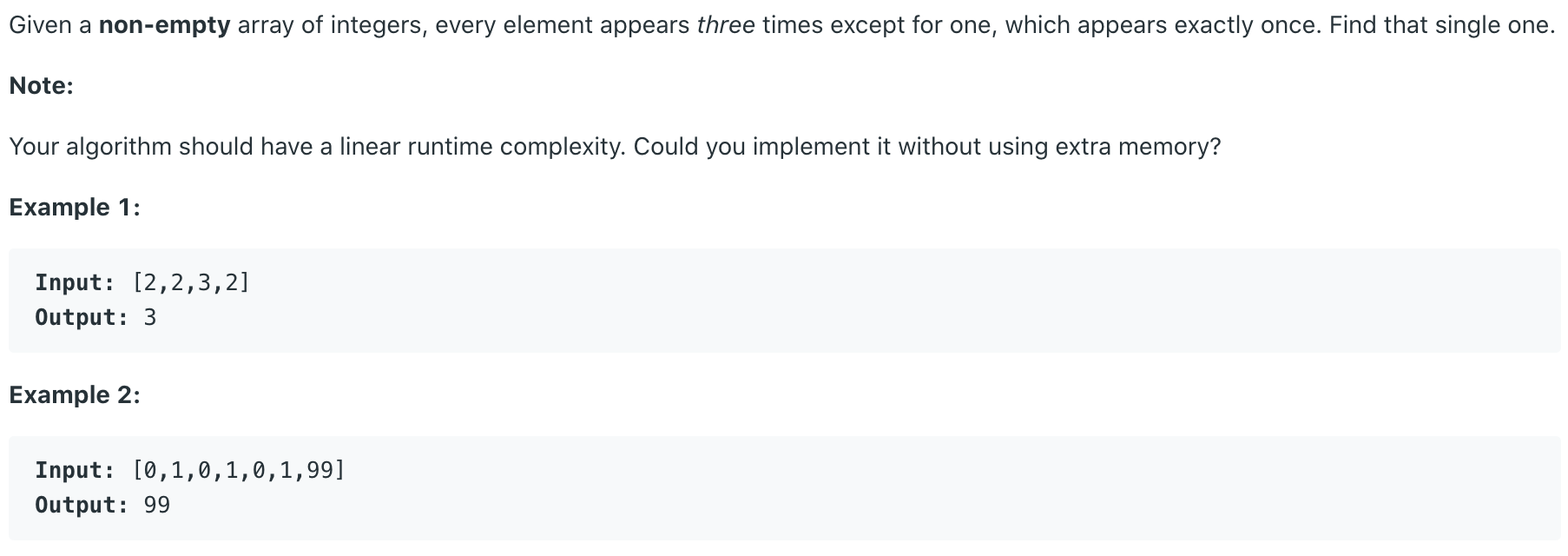Single Number II
franklinqin0 MathHash TableBit
# Problem

# Solution
# HashSet
Convert an input array into HashSet and then to compare the tripled sum of the set with the array sum:
Complexity
time:
space:
def singleNumber(self, nums):
return (3 * sum(set(nums)) - sum(nums)) // 2
1
2
2
# HashMap
from collections import Counter
def singleNumber(self, nums):
hashmap = Counter(nums)
for k in hashmap.keys():
if hashmap[k] == 1:
return k
1
2
3
4
5
6
7
2
3
4
5
6
7
# Follow Up
Can you solve it using constant space?
We then have to use some clever bit manipulation methods. Both methods below take linear time and constant space.
# Digital Logic
A good explanation (opens new window) on the following code using digital logic.
def singleNumber(self, nums: List[int]) -> int:
seen_once = seen_twice = 0
for num in nums:
seen_once = ~seen_twice & (seen_once ^ num)
seen_twice = ~seen_once & (seen_twice ^ num)
return seen_once
1
2
3
4
5
6
7
8
2
3
4
5
6
7
8
# Count Occurrences
If x is the single number result to return, then the bits where x are 1 occur 3y+1 times, where . The same case happens for 0 bits of x but doesn't make a difference on res so neglected.
Note that the highlighted line is used in place of the line below for other languages, due to Python's unbound int.
# Extension
This method can take more than 3 odd duplicates and return single number res.
def singleNumber(self, nums: List[int]) -> int:
res = 0
for i in range(32):
cnt = 0
for j in range(len(nums)):
if nums[j] & (1 << i) != 0:
cnt += 1
res = res | ((cnt % 3) << i)
# return res
return res if res in nums else res - 2**32
1
2
3
4
5
6
7
8
9
10
2
3
4
5
6
7
8
9
10